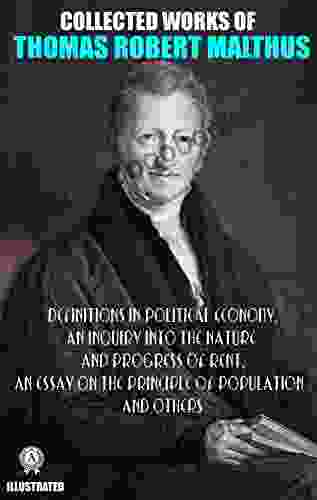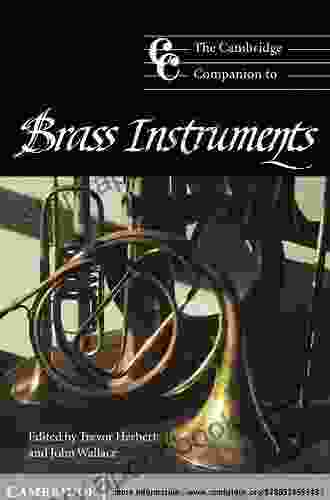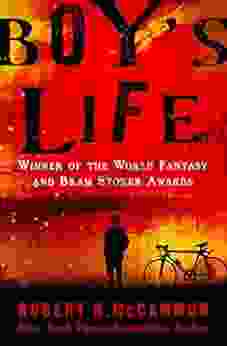Definitions In Political Economy: An Inquiry Into The Nature And Progress Of

Political economy, a field that explores the intricate relationships between production, distribution, and consumption of goods and services within a society, has emerged as a cornerstone of modern economic thought. In the esteemed work "Definitions in Political Economy: An Inquiry into the Nature and Progress Of," acclaimed economist and sociologist Vilfredo Pareto presents a comprehensive and profound analysis of the fundamental concepts that shape this multifaceted discipline.
Delving into the Depths of Economic Terminology
Pareto firmly establishes that precision in economic discourse is paramount for meaningful analysis and understanding. Throughout the book, he meticulously defines and elucidates key terms, laying a solid foundation for readers to grasp the complexities of political economy.
4.4 out of 5
| Language | : | English |
| File size | : | 1618 KB |
| Text-to-Speech | : | Enabled |
| Screen Reader | : | Supported |
| Enhanced typesetting | : | Enabled |
| Word Wise | : | Enabled |
| Print length | : | 836 pages |
| X-Ray for textbooks | : | Enabled |
Capital: Pareto defines capital as "that part of wealth which is used to produce more wealth." It encompasses tangible assets such as machinery, buildings, and inventory, as well as intangible assets like patents and goodwill.
Interest: Interest is described as "the price paid for the use of capital." It represents the compensation received by lenders for providing funds to borrowers seeking to expand their productive capacity.
Rent: Rent, in Pareto's view, is "the payment made for the use of land." It arises from the scarcity of land and its essential role in production.
Wages: Wages are defined as "the payment made for the use of labor." They reflect the compensation received by workers for their contribution to the production process.
Profit: Profit is described as "the excess of the value of the product over the cost of production." It represents the return to entrepreneurs and investors for assuming the risks and uncertainties inherent in economic activities.
Unraveling the Dynamics of Economic Systems
Beyond defining key terms, Pareto delves into an incisive examination of various economic systems that have shaped societies throughout history. He provides a nuanced analysis of capitalism, socialism, and communism, highlighting their distinct characteristics and implications.
Capitalism: Capitalism is characterized by private ownership of the means of production, profit-driven economic activity, and a decentralized market system. Pareto recognizes its potential for generating innovation and economic growth but also acknowledges its inherent inequality and periodic crises.
Socialism: Socialism, in contrast, advocates for collective ownership of the means of production and a centrally planned economy. Pareto argues that while socialism may mitigate inequality, it can stifle individual initiative and economic efficiency.
Communism: Communism, as envisioned by Pareto, is an extreme form of socialism where the state controls all aspects of economic activity and attempts to eliminate private property and economic disparities. He expresses skepticism about the feasibility and desirability of such a system.
Exploring the Evolution of Economic Thought
Pareto's work not only defines and analyzes economic concepts but also traces the evolution of economic thought throughout history. He provides insightful commentary on the contributions of influential economists, including Adam Smith, Karl Marx, and Léon Walras.
Classical Economics: Pareto discusses the foundational ideas of classical economists, such as Smith and David Ricardo, emphasizing their focus on natural laws governing economic behavior and their belief in the self-regulating nature of markets.
Marxian Economics: Pareto engages with Marx's critique of capitalism, highlighting his theories of surplus value, class struggle, and the inevitable downfall of the capitalist system.
Neoclassical Economics: Pareto examines the emergence of neoclassical economics, emphasizing its focus on marginal utility, supply and demand analysis, and the importance of individual decision-making in shaping economic outcomes.
Legacy and Impact of Pareto's Work
"Definitions in Political Economy: An Inquiry into the Nature and Progress Of" has had a lasting impact on the field of economics. Pareto's rigorous approach to defining economic terms and his incisive analysis of economic systems continue to serve as a valuable resource for scholars and policymakers alike.
His work has influenced subsequent generations of economists, including those associated with the Lausanne School of economics, which emphasizes the role of mathematical analysis and logical reasoning in economic inquiry.
Pareto's contributions extended beyond economics, influencing sociology and political science. His concept of "Pareto optimality," which refers to a state where it is impossible to improve the welfare of one individual without harming another, has become a fundamental principle in welfare economics and social choice theory.
Vilfredo Pareto's "Definitions in Political Economy: An Inquiry into the Nature and Progress Of" is an indispensable work that illuminates the fundamental concepts and dynamics of political economy. Through its meticulous definitions, insightful analysis of economic systems, and tracing of the evolution of economic thought, the book provides a comprehensive understanding of the complexities and subtleties of this multifaceted discipline.
For anyone seeking a deeper understanding of political economy, Pareto's work stands as a timeless and invaluable resource, offering a solid foundation for further exploration and engagement with this ever-evolving field.
4.4 out of 5
| Language | : | English |
| File size | : | 1618 KB |
| Text-to-Speech | : | Enabled |
| Screen Reader | : | Supported |
| Enhanced typesetting | : | Enabled |
| Word Wise | : | Enabled |
| Print length | : | 836 pages |
| X-Ray for textbooks | : | Enabled |
Do you want to contribute by writing guest posts on this blog?
Please contact us and send us a resume of previous articles that you have written.
 Book
Book Novel
Novel Page
Page Chapter
Chapter Text
Text Story
Story Genre
Genre Reader
Reader Library
Library Paperback
Paperback E-book
E-book Magazine
Magazine Newspaper
Newspaper Paragraph
Paragraph Sentence
Sentence Bookmark
Bookmark Shelf
Shelf Glossary
Glossary Bibliography
Bibliography Foreword
Foreword Preface
Preface Synopsis
Synopsis Annotation
Annotation Footnote
Footnote Manuscript
Manuscript Scroll
Scroll Codex
Codex Tome
Tome Bestseller
Bestseller Classics
Classics Library card
Library card Narrative
Narrative Biography
Biography Autobiography
Autobiography Memoir
Memoir Reference
Reference Encyclopedia
Encyclopedia Andrew J Clark
Andrew J Clark Mary Gribbin
Mary Gribbin Omar Prakash
Omar Prakash Laurie Elmquist
Laurie Elmquist Victoria Dickenson
Victoria Dickenson Melissa Lowry
Melissa Lowry Tyler W Kurt
Tyler W Kurt Michael Redhill
Michael Redhill Rich Linville
Rich Linville Sarina Bowen
Sarina Bowen Susan Abulhawa
Susan Abulhawa Zakes Mda
Zakes Mda William Shaw
William Shaw Stefano Marino
Stefano Marino Randy Luethye
Randy Luethye Reinhold Seitl
Reinhold Seitl Perry Comer
Perry Comer Trevor Herbert
Trevor Herbert L Frank Baum
L Frank Baum Willow Lung Amam
Willow Lung Amam
Light bulbAdvertise smarter! Our strategic ad space ensures maximum exposure. Reserve your spot today!
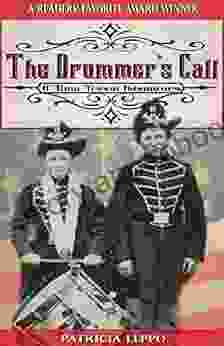
 Virginia WoolfEmbark on a Heart-Pounding Time Travel Adventure with "The Drummer: Call...
Virginia WoolfEmbark on a Heart-Pounding Time Travel Adventure with "The Drummer: Call...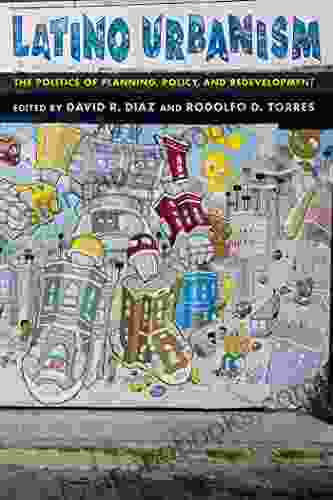
 Salman RushdieUnlock the Secrets of Urban Renewal: The Politics of Planning Policy and...
Salman RushdieUnlock the Secrets of Urban Renewal: The Politics of Planning Policy and... Art MitchellFollow ·7.4k
Art MitchellFollow ·7.4k Ivan CoxFollow ·18.4k
Ivan CoxFollow ·18.4k Willie BlairFollow ·6.6k
Willie BlairFollow ·6.6k Isaac MitchellFollow ·7.6k
Isaac MitchellFollow ·7.6k Cortez ReedFollow ·3.6k
Cortez ReedFollow ·3.6k Edison MitchellFollow ·11.7k
Edison MitchellFollow ·11.7k Shaun NelsonFollow ·18k
Shaun NelsonFollow ·18k Glen PowellFollow ·6.5k
Glen PowellFollow ·6.5k
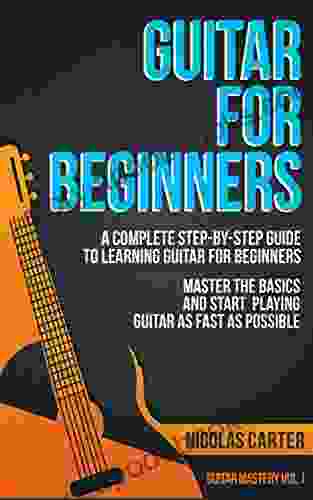
 Jorge Luis Borges
Jorge Luis BorgesUnlock Your Inner Musician: The Ultimate Guide to...
Embark on a Musical...
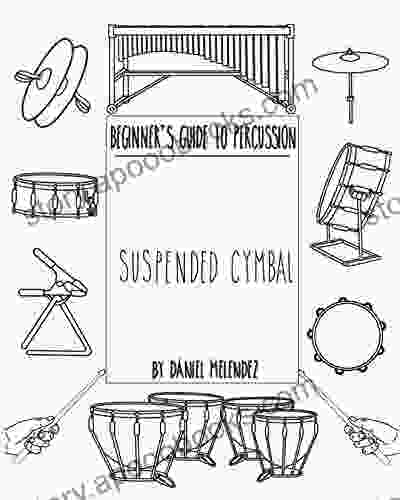
 Carlos Drummond
Carlos DrummondQuick Reference Guide To Percussion Instruments And How...
Unleash your inner rhythm with...

 Roberto Bolaño
Roberto BolañoUnlock Your Guitar Potential: The Ultimate Guitar Mastery...
Are you ready...

 Fred Foster
Fred FosterLooking for Lady Dee: A Punk Rock Mystery
By [Author's Name] Looking for Lady Dee is...
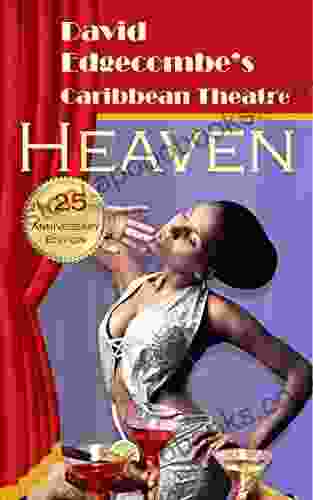
 Jacques Bell
Jacques BellJourney into the Mystical Realm of "Heaven Polly Alice...
In the tapestry of literature, where...
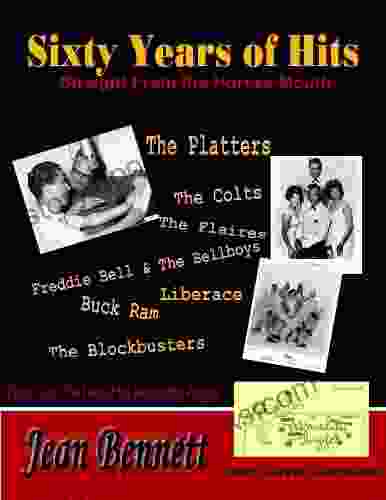
 Julio Ramón Ribeyro
Julio Ramón RibeyroSixty Years of Hits: A Musical Journey Through Time
Music has the...
4.4 out of 5
| Language | : | English |
| File size | : | 1618 KB |
| Text-to-Speech | : | Enabled |
| Screen Reader | : | Supported |
| Enhanced typesetting | : | Enabled |
| Word Wise | : | Enabled |
| Print length | : | 836 pages |
| X-Ray for textbooks | : | Enabled |


